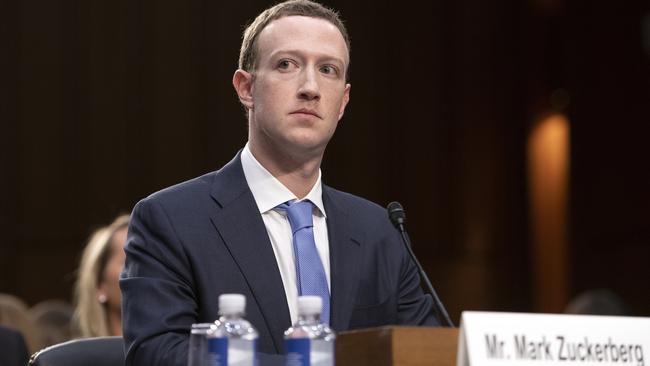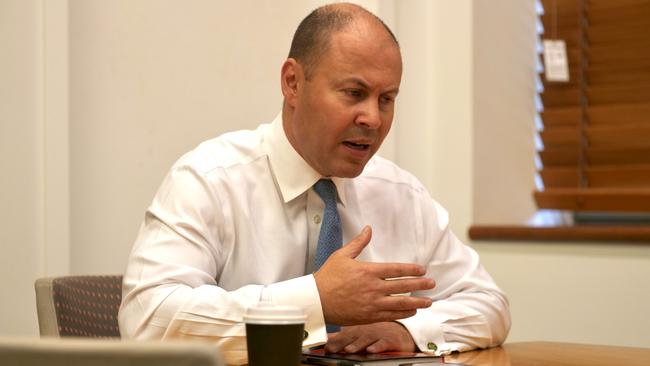Christopher Pyne: Google is not in the news and Facebook is facing worldwide condemnation
I don’t know who was advising the tech giant but this was about the worst negotiating play imaginable, writes Christopher Pyne.
Opinion
Don't miss out on the headlines from Opinion. Followed categories will be added to My News.
The dispute between Facebook and the Australian Government is bewildering to most Australians but it is one of the most important plays in the brief history of digital media.
At its heart is a difference of opinion about the reuse of content.
On one side sits the creators of content – the journalists, columnists and commentators who produce media content such as news reports, articles and opinion pieces.
They typically publish that content to consumers through newspapers, media channels and those media companies that own websites, which now create revenue through subscriptions.
The subscribers gain access to more detailed parts of the website or favourite columnists and so on.
Those publishers, such as News Corp (publisher of The Advertiser), Nine Entertainment, Seven West Media, Southern Cross Austereo and myriad others, pay those content producers wages and emoluments. It is big business.
Because it relies on human capital and intellect, it is hugely expensive.
That’s the way the media world had operated for eons, until digital media came along and disrupted the market. That’s what disrupters do.

Digital media platforms such as Facebook and Google provide outlets to republish the traditional media’s works – columns, stories, features – but they don’t pay them for it. Hence the problem.
One side pays for the production, another side uses that output but pays nothing for it. The company paying for the production is steadily going out of business.
That’s why over the past few years, what were once media behemoths, such as Fairfax, are shadows of their former selves. In Fairfax’s case, it merged with Nine.
Thousands of people who worked in the traditional media business model have lost their livelihoods.
Digital media has decimated traditional media. This is irreversible.
What the Australian Government has proposed in its mandatory new code would force digital platforms, such as Facebook and Google, to pay for media content that they lift from news media companies.
It seems like a pretty reasonable proposition.
The first problem is that’s not the business model of Google and Facebook.
Secondly, if such a momentous change happens in such a sophisticated and lucrative market as Australia, there is every chance that it will spread like a contagion around the world.
It could become a model for other countries, making digital media platforms much less profitable.
That’s why Facebook last week took the extraordinary step of locking out content produced by Australian news organisations. In the process it shut multiple other sites – micro, small and medium-sized businesses, charities and health networks. It created mayhem.
There will likely be legal action resulting from it, compensation to small businesses ruined by it and goodness knows what other ramifications.
It was a bold step.
Facebook obviously believes it was justified.
I don’t know who is advising the company but it was just about the worst negotiating play imaginable.
To many people it seemed like the action you take when you want to blow up the whole relationship.
While Facebook blew up its relationship with the Australian Government, Google did deals behind the scenes over the past few weeks and has agreed, even before the media code has been implemented, to commercial arrangements with the main Australian media companies. The outcome has been that Google is not in the news and Facebook is facing worldwide condemnation for their actions.

Indeed, if anything, Facebook has alerted the governments of the world to the policy in Australia on a scale and in a way that the digital platform’s competitors could only ever have dreamt about!
Most Australians wouldn’t realise that other nations with similar economies, societies and systems to ours often look at what our government proposes to see if that is something they might like to adopt.
A good example is the decision the Australian Government made a few years ago to not allow IT and communication companies with links to foreign governments access to our proposed 5G network because of its national security sensitivity.
Canada, the United States, New Zealand and, eventually, the United Kingdom followed suit. Germany and France and other European Union countries are on a similar track.
Facebook is worried that the media code being adopted in Australia will become the model for many other nations.
The irony is the action it took last week will achieve precisely the opposite of what it intended.
Far from having the Morrison Government cowering in the corner suing for peace, the Treasurer, Josh Frydenberg, and Communication Minister Paul Fletcher are left with no alternative to pursuing the implementation of the code.
Hopefully, over the course of the next week or two, the media companies, digital platforms and the Australian Government will all agree to terms and life will go on.
But one thing is for sure, it will be on the Australian Government’s terms, not the digital media platforms’.
Any other outcome would see our sovereignty compromised, and no government of any persuasion will allow that to happen.





